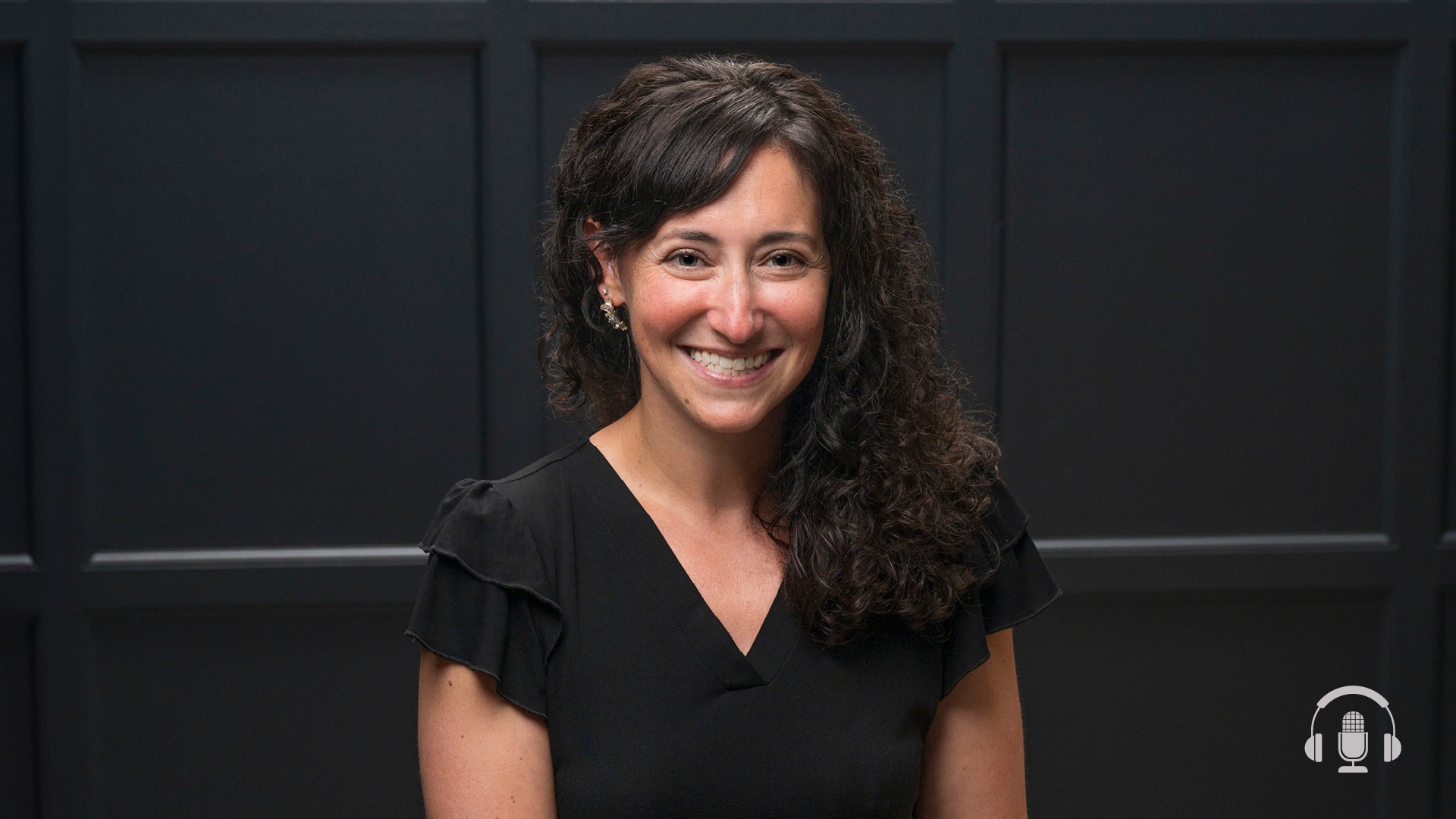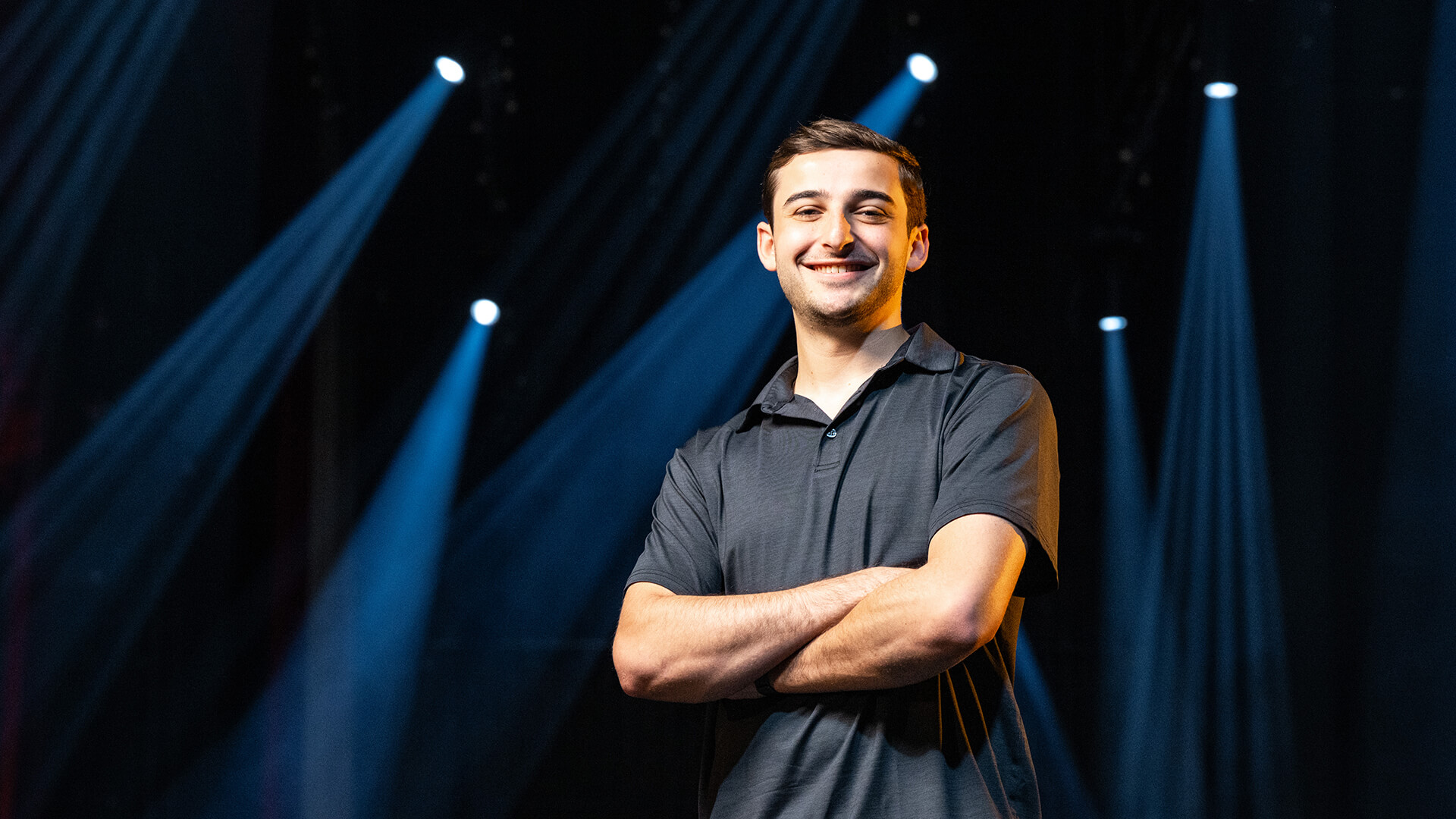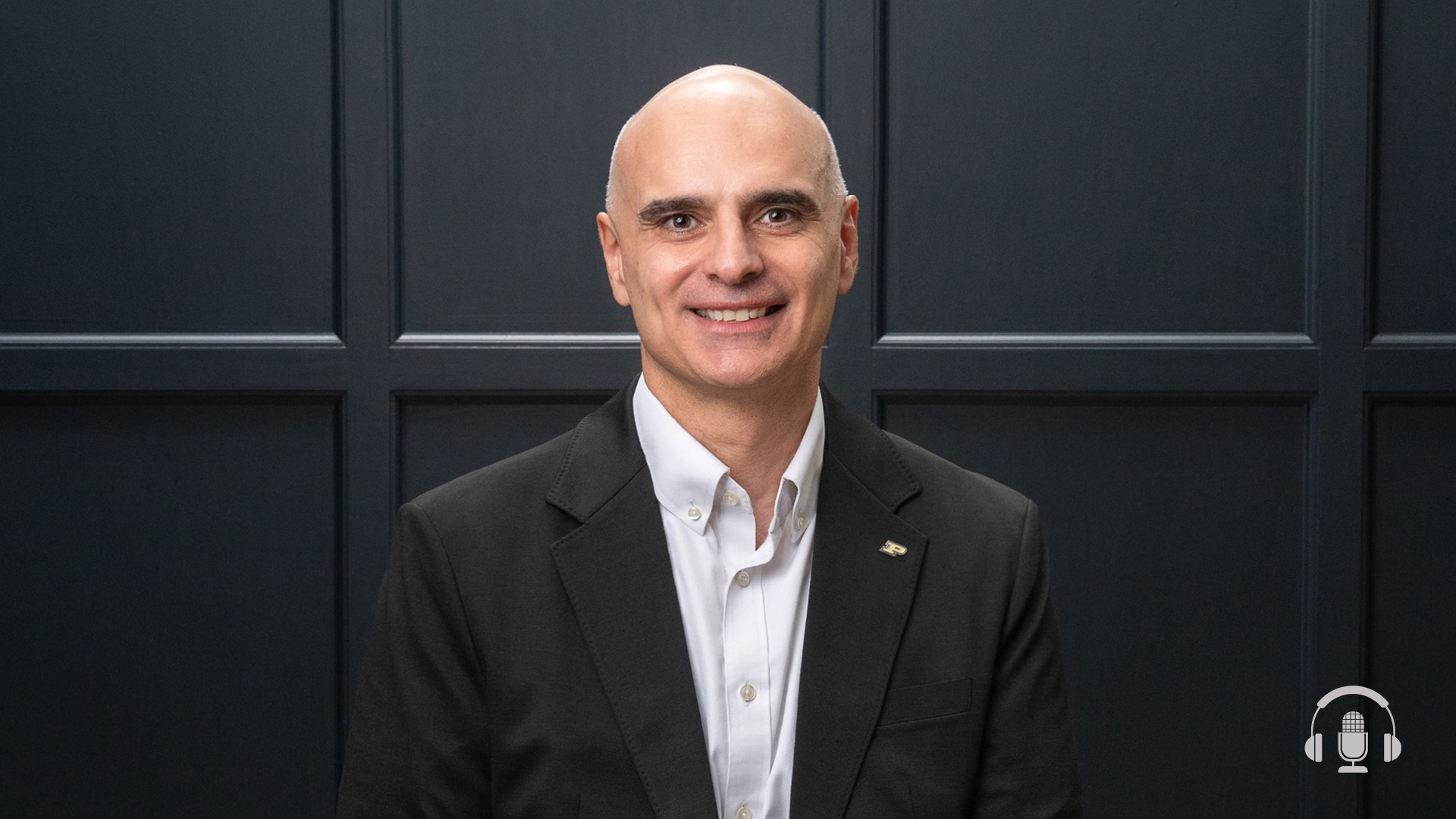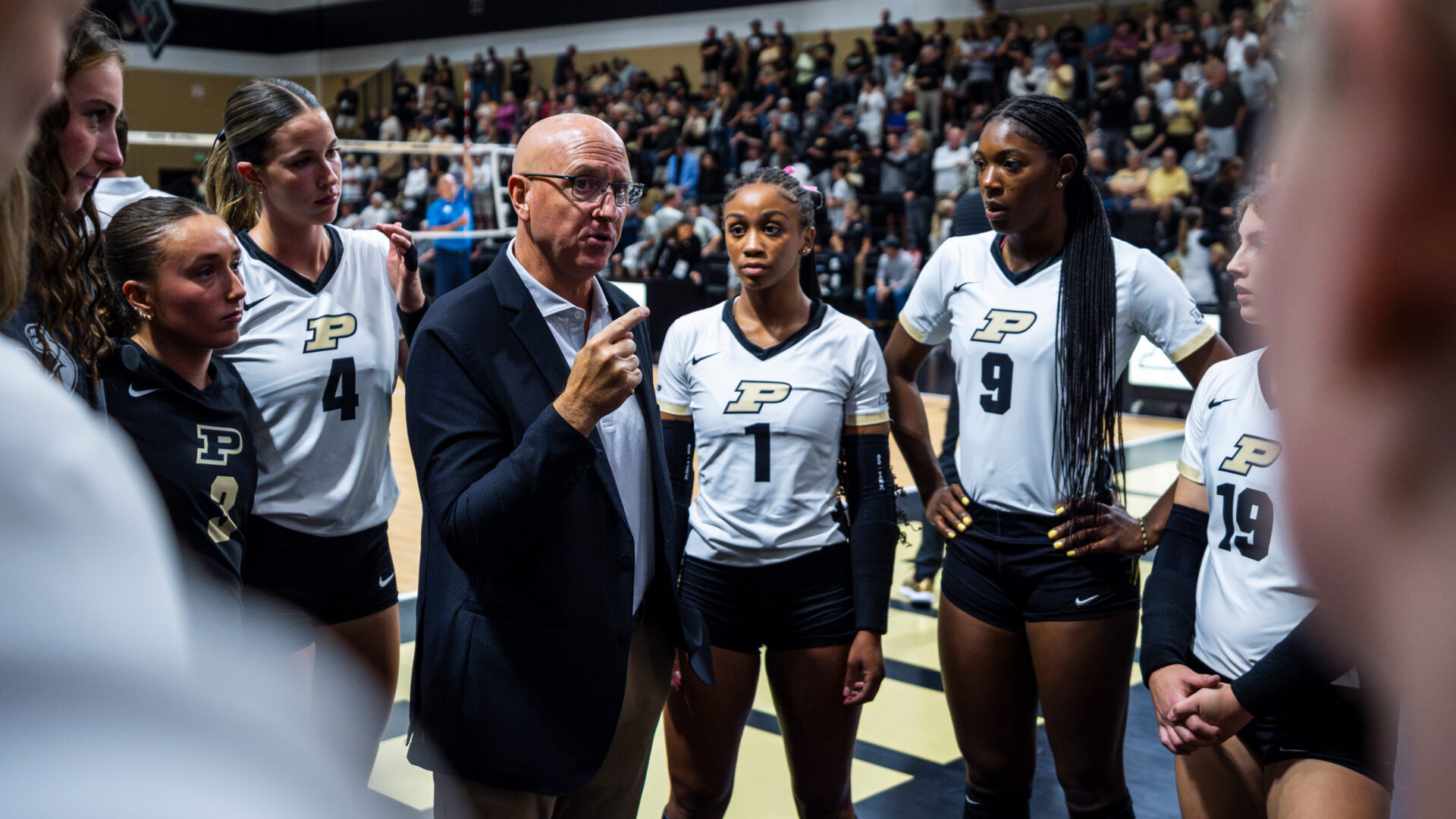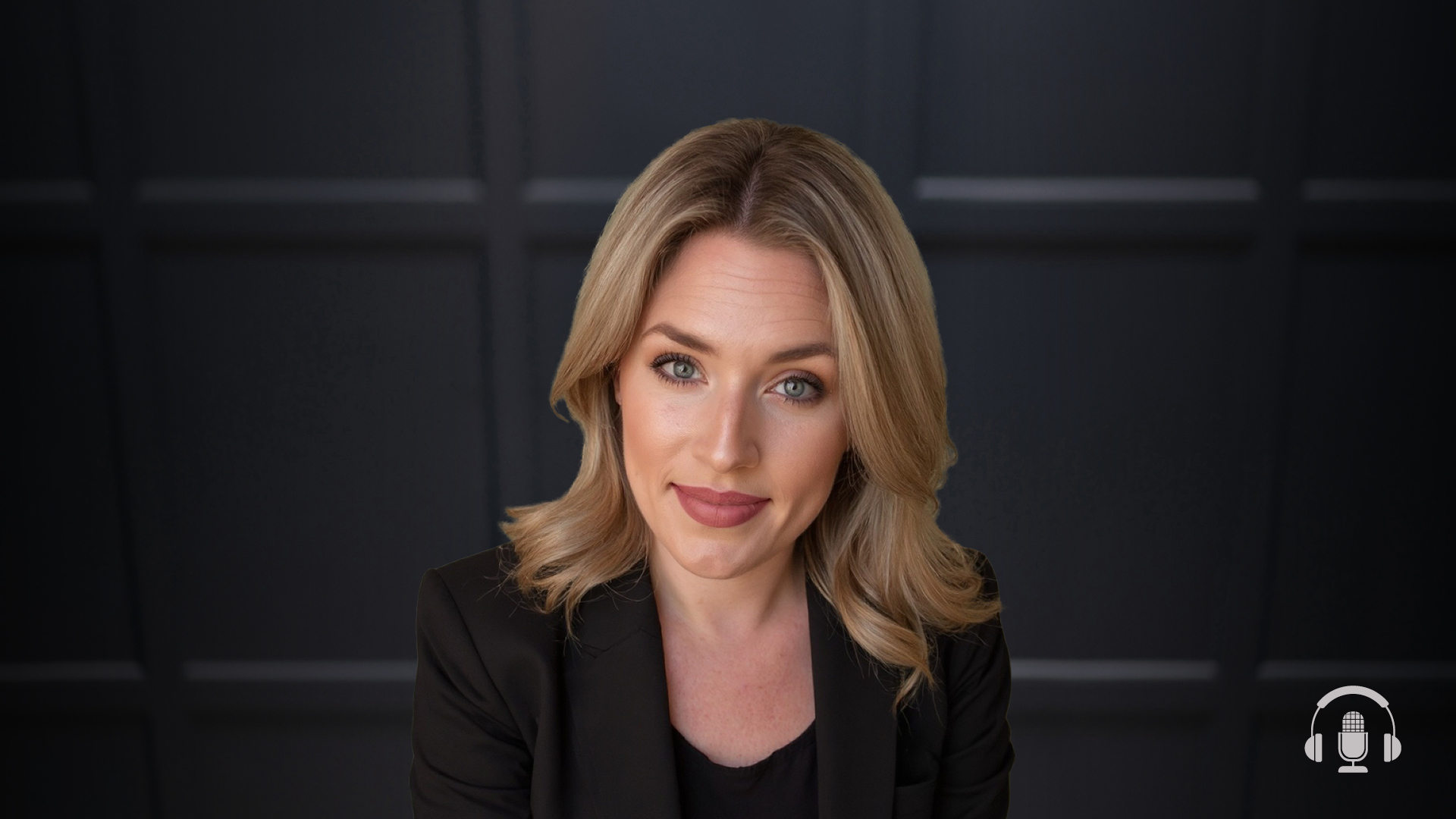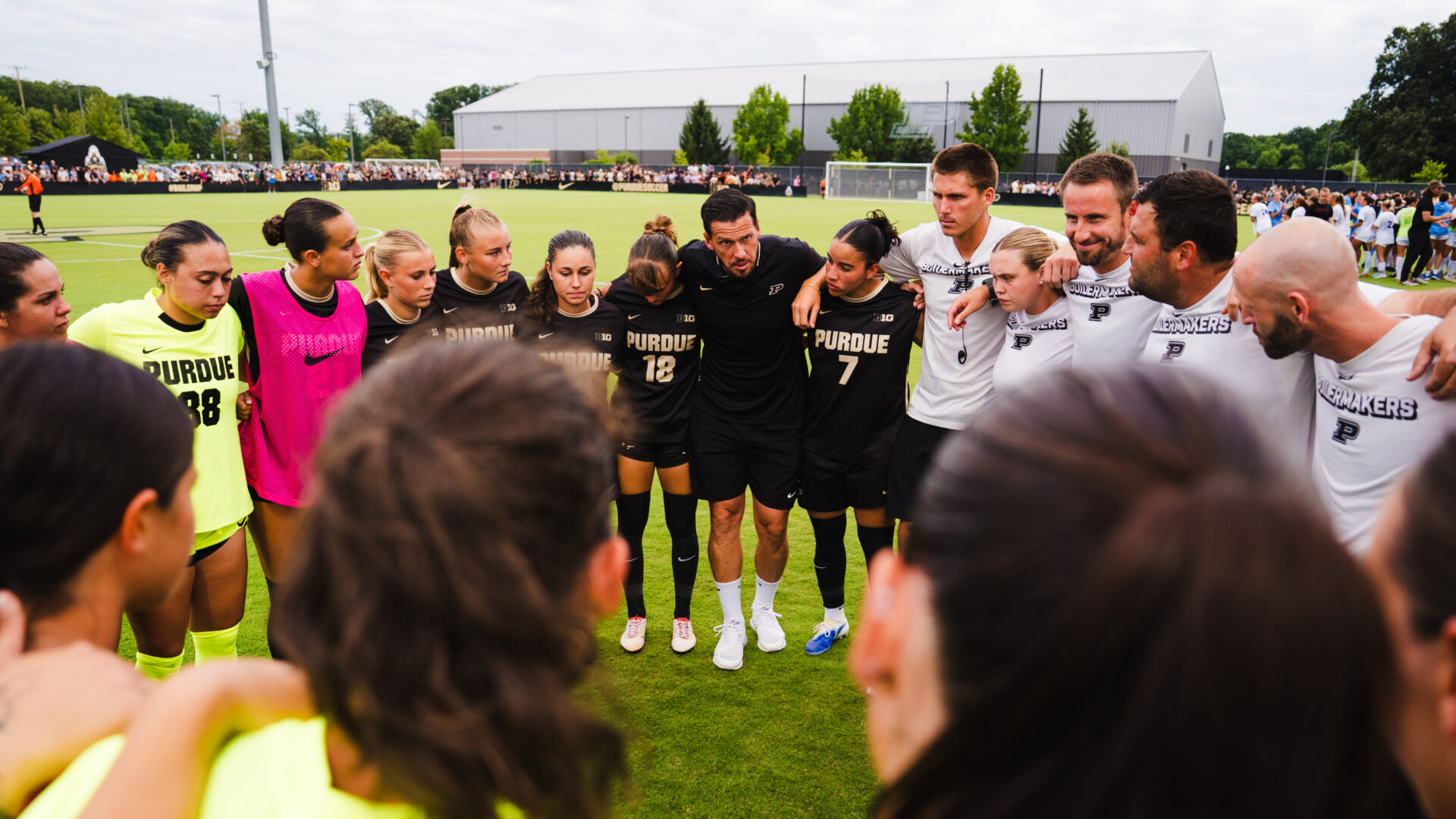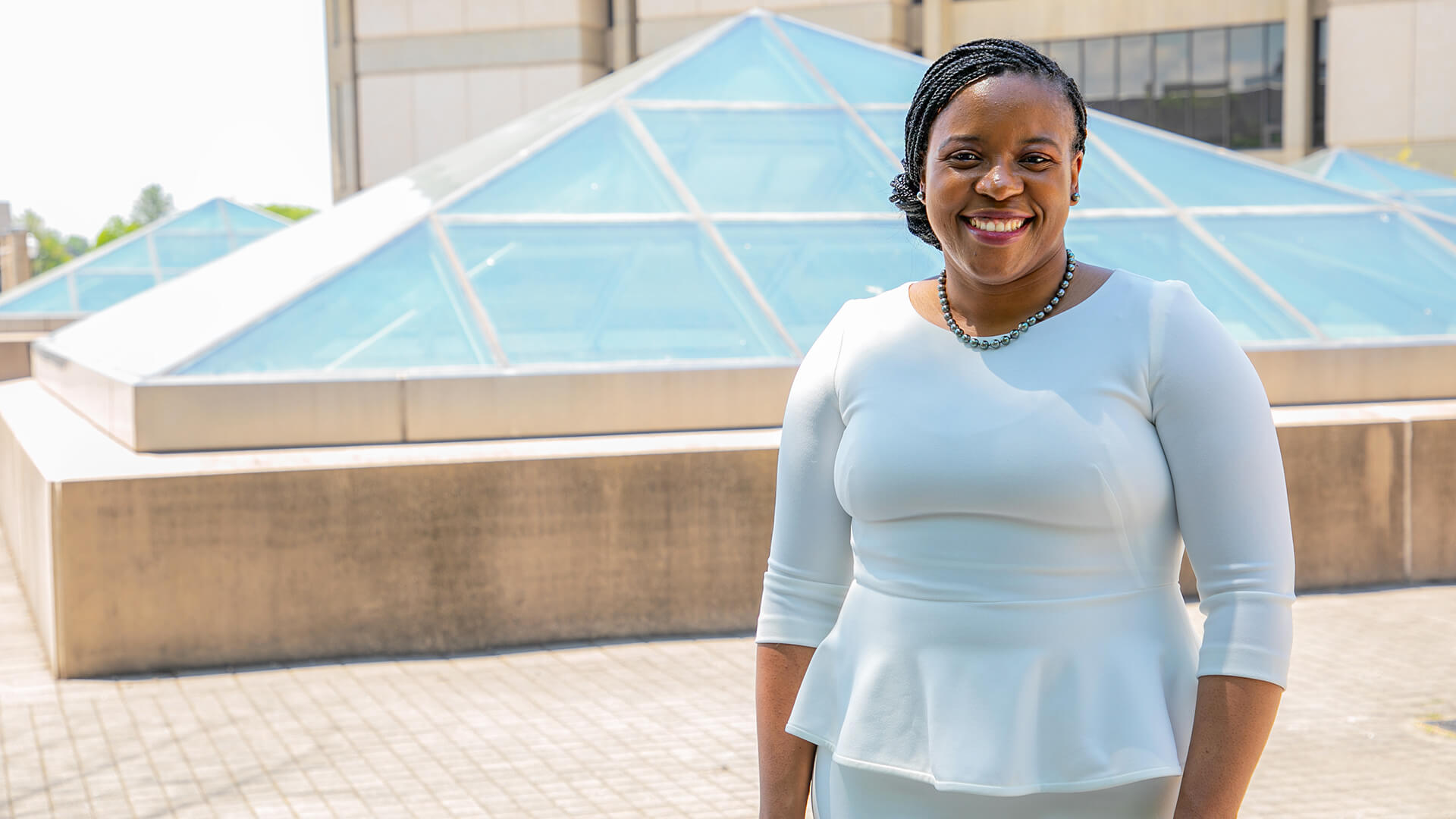U.S. Paralympian finds inspiration in others’ success
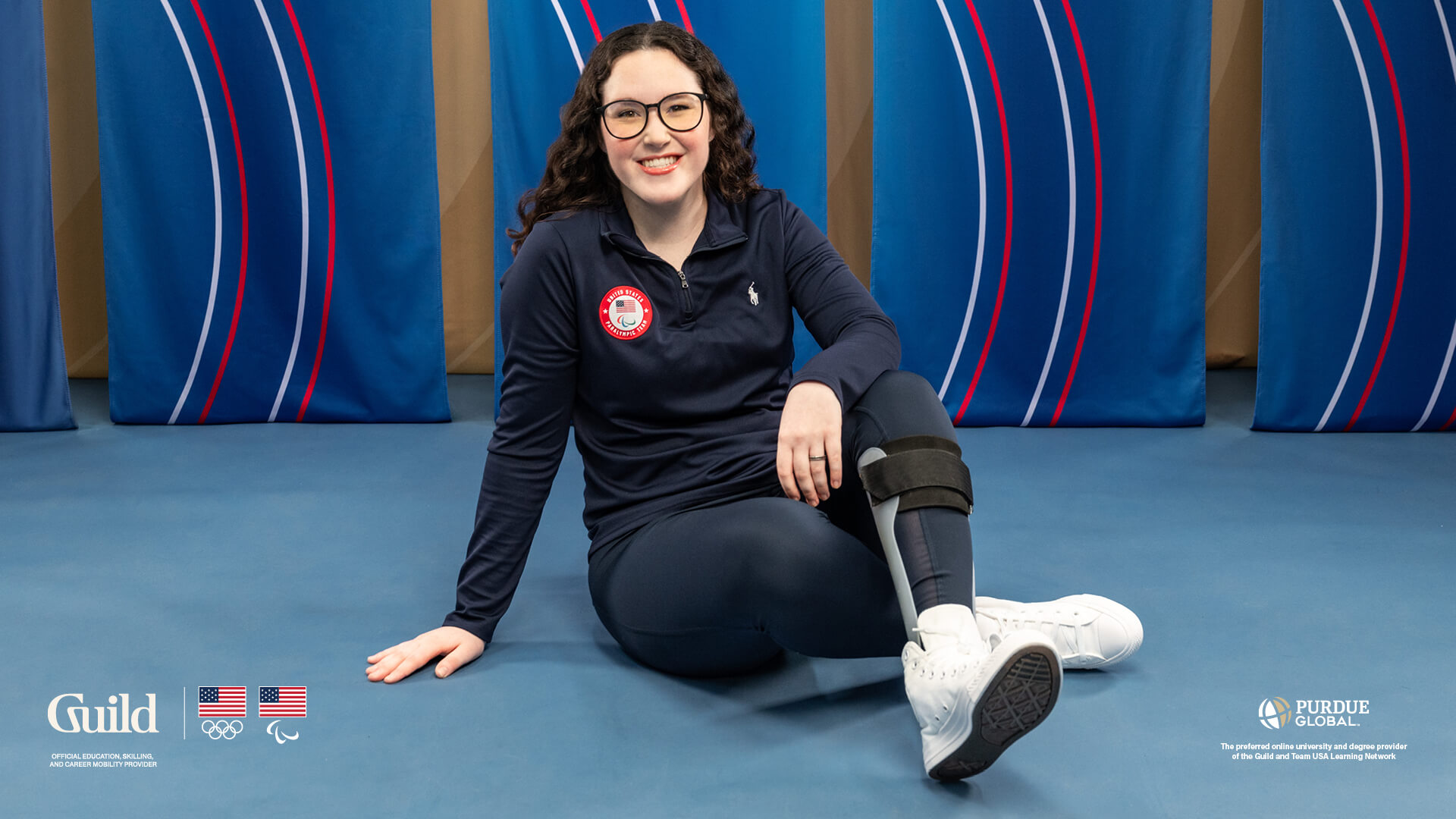
U.S. Paralympian Lauryn DeLuca competed at the Rio 2016 Paralympic Games in parafencing. (Purdue Global photo/Kelsey Lefever)
Thanks to Guild and Team USA Learning Network, Lauryn DeLuca is the first Team USA athlete to graduate from Purdue Global
Watching Team USA compete on the world’s stage is inspiring for millions. Countless children watch, glued to their screen, experiencing their first hopes that maybe someday, when they grow up, they’d be the ones representing their countries with pride.
U.S. Paralympian Lauryn DeLuca was one of those kids.
“I remember watching fencing for the first time in 2008,” she says. “Something just clicked.”
But even after becoming Team USA’s youngest parafencer at 17 and competing at the Rio 2016 Paralympic Games, DeLuca still felt uncertain about her future after high school.
“I changed my major so many times while in undergrad,” she says.
She started out in engineering. Then she tried math education, then elementary education, and then child and youth studies. Eventually she realized all her attempts to find the right fit had a common thread: she wanted to help equip other people for success, similar to how she’d been supported through the years.
As an athlete living with cerebral palsy, DeLuca is no stranger to the persistence and dedication it takes to succeed. But she’s also a fervent believer in the possibilities that come from right-place-right-time moments. In fact, she would say her life changed when someone helped her find a path where she could thrive. And she wants to pay it forward.
“More than anything, I want to help others find ways to live successful lives,” she says.
Although DeLuca sustained a career-ending shoulder injury at the age of 20, she never stopped seeing opportunities. She’s looking to the future now — thanks to the Guild and Team USA Learning Network, DeLuca has become the first member of Team USA to graduate from a Purdue Global program.
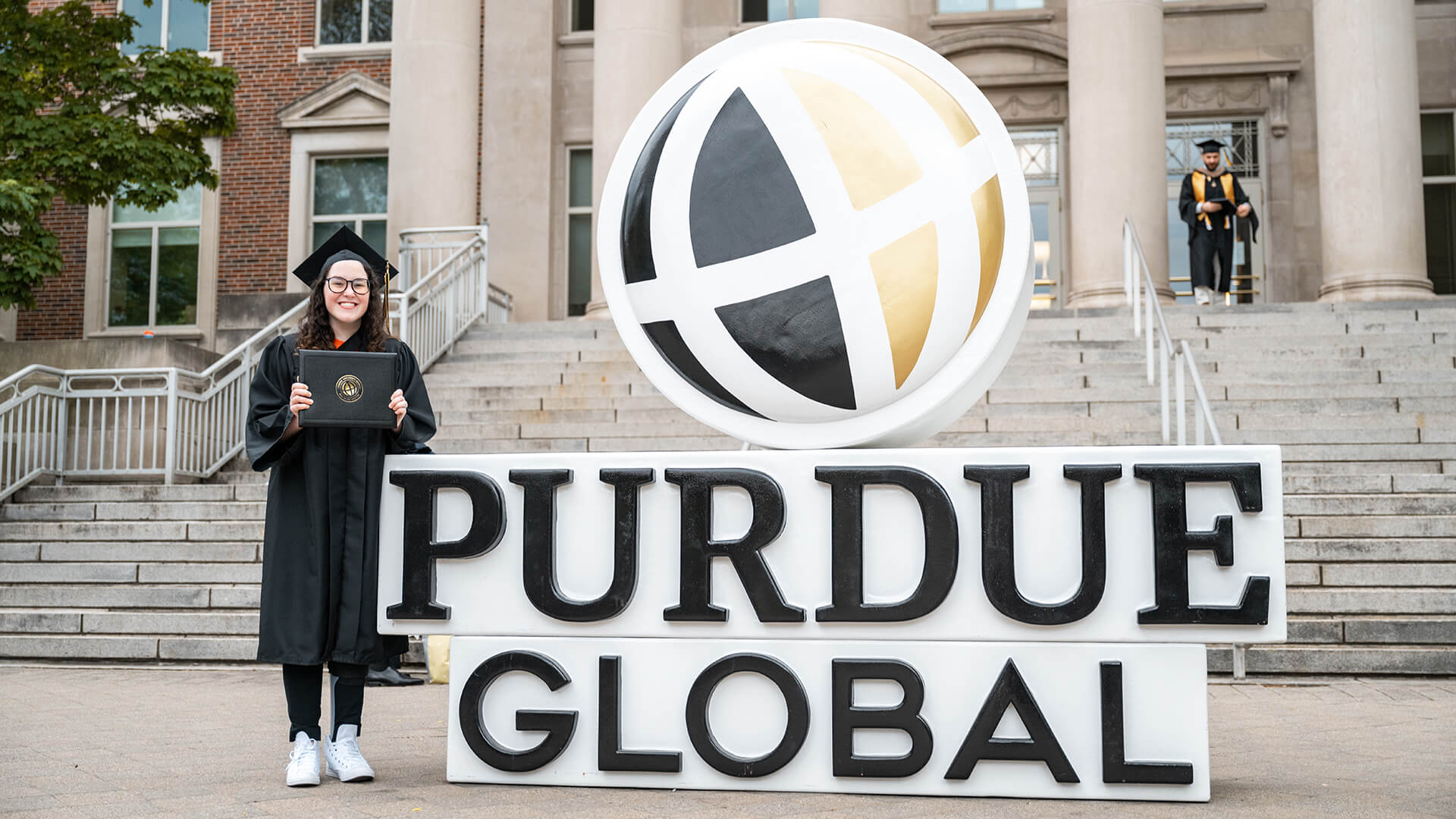
Advancing the path to success
Since DeLuca is considered ambulatory (able to walk), she learned her sport alongside able-bodied peers. Cerebral palsy, she says, manifests in various levels of functionality and a combination of early intervention, intensive therapies and a leg brace is what’s worked best for her.
“I say only half of my body works,” she says with a laugh. “I typically use the right side of my body more than the left, and in daily life, I get more pain on my right side from compensating for it.”
Despite competing with a limp and without the equal strength on the left side of her body, DeLuca held her own against fully able-bodied peers. It wasn’t until she approached her teen years that it became more difficult to keep up. Then it became evident that her time as a fencer was coming to an end.
But a chance encounter gave her more time.
“I was competing at a tournament in Columbus, Ohio, and a Paralympic coach happened to see that I was limping. He went right up to my parents and said, ‘Your daughter … she’s disabled, right?’ They looked at him for a minute and were like ‘… Who are you?’” she recalls, laughing.
As badly as that could have gone, it didn’t.
“He asked them if they knew I could do parafencing. They were skeptical about my eligibility since I don’t use a wheelchair full time, but he encouraged them to send me to his camp to meet the national team and see what comes of it.”
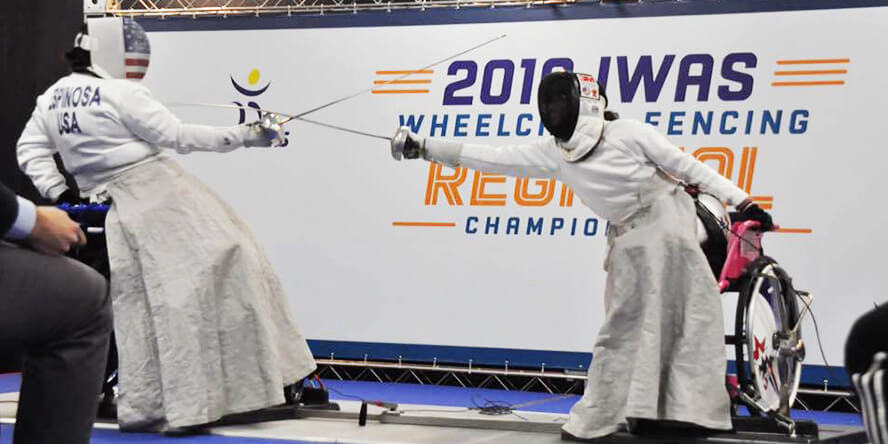
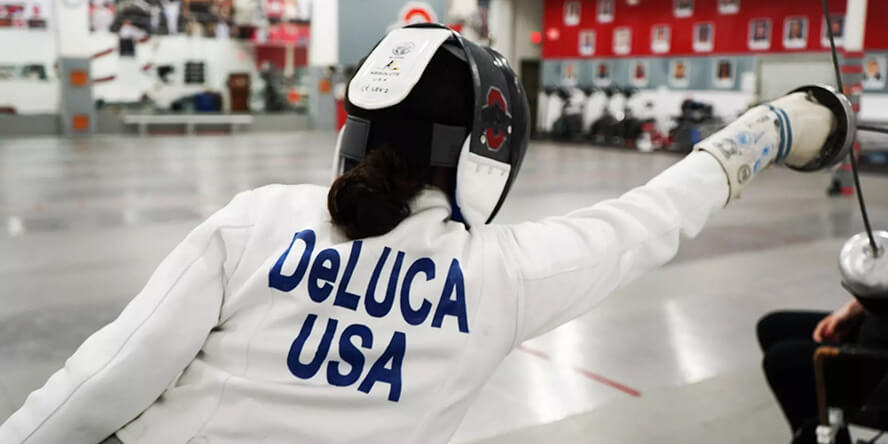
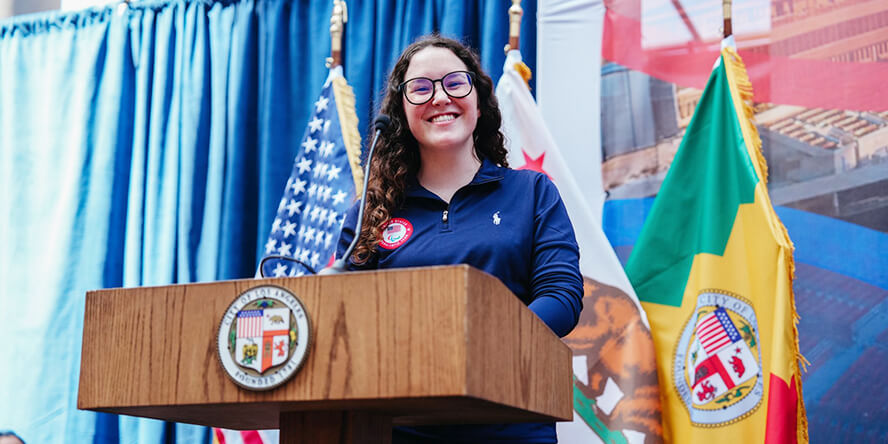
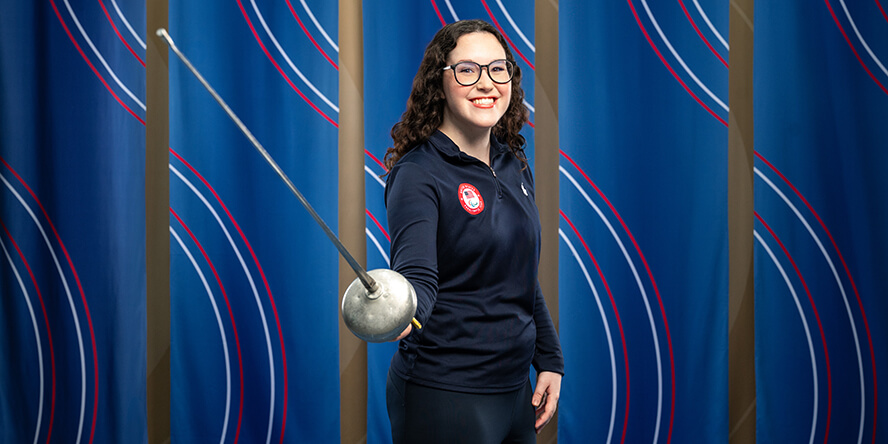
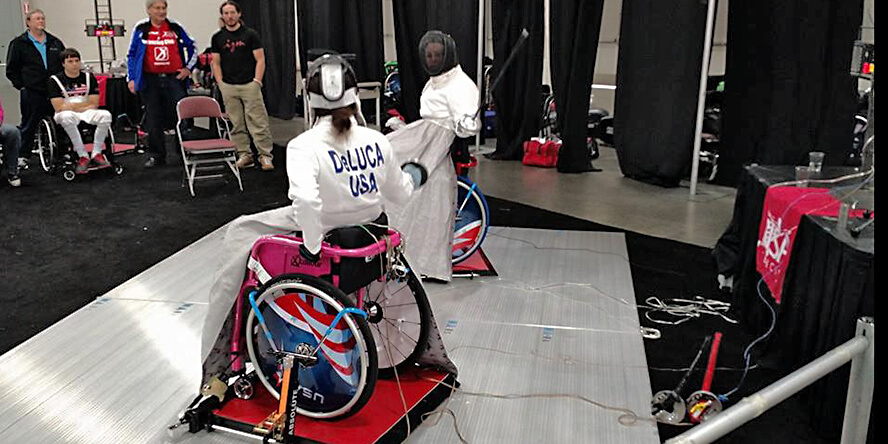
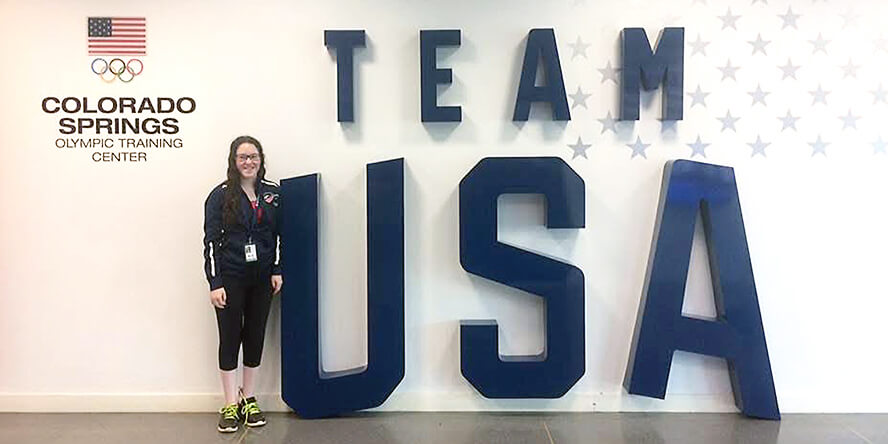
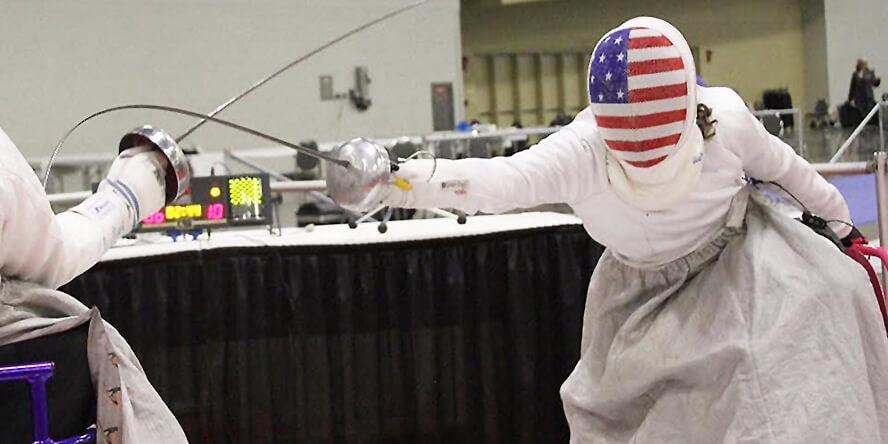
It changed everything. She confesses there had been a gaping hole in her ability to picture her future — simply because she had no point of reference.
“It was the first time in my life I saw a grown woman with a physical disability. At 13, I’d never seen anyone that I could imagine as a future me. It changed my confidence and my direction,” she says.
That single experience was the difference between quitting a sport she loved and competing at the Rio 2016 Paralympic Games.
Empowering contenders
When DeLuca retired from parafencing, she still had a couple years left of her undergrad degree. After graduation, she spent some time working in adaptive sports, advocating for other athletes. Eventually, in 2024, she accepted an athlete fellowship through the LA28 Olympic and Paralympic Organizing Committee, where she completed two six-month rotations in Los Angeles. One of the functional areas she learned was in human resources.
“HR gets a bad rap, but I started to understand how someone’s experience with HR really informs the rest of their employee experience and development. And I’m an educator at heart,” she says.
While she worked one of her rotations in Los Angeles — a fair jog from her home and husband in Cleveland — the partnership between the Guild and Team USA Learning Network and Purdue Global was announced and she made a connection right away.
“Through the Guild and Team USA Learning Network, I found that Purdue Global has a certificate program in HR and I saw the opportunity to learn how to retain employees, train them and set them up for success,” she says. “That’s what education is for.”
So as she equips herself for her own future success, she’s learning how to do that for others, too. And she sees countless opportunities to build a future she’s excited about.
“This certificate I’ve earned with Purdue Global has given me skills I can offer to organizations when it comes to building their onboarding process and materials. It also informs the experiences I have with my national governing body (USA fencing),” she says.
“And I’m investing in my future too,” she says. “My husband has always toyed with the idea of building his own company, and now I know how to set up those systems if we should decide to do that at some point. I’m a firm believer that throughout this life, you collect tools. And those tools will give you an advantage in any setting.”
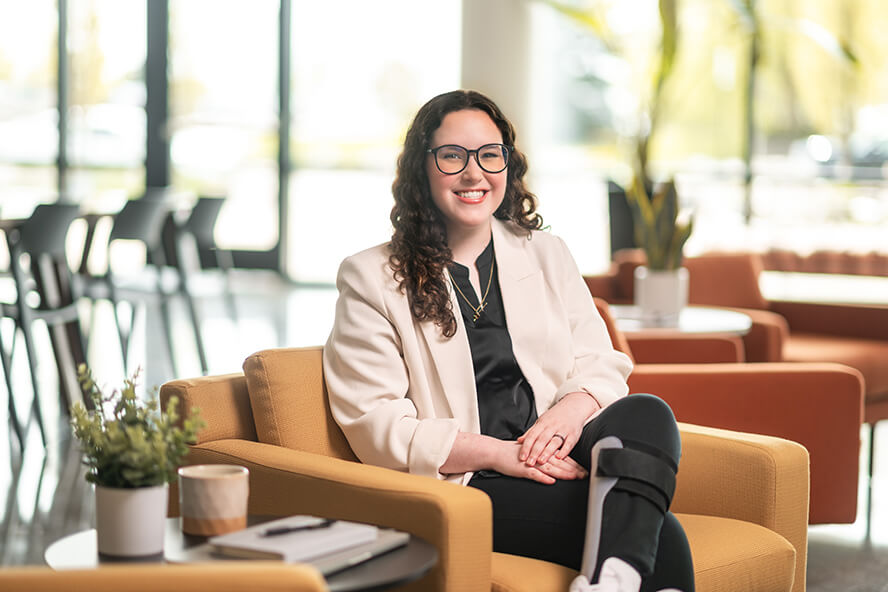
More than anything, I want to help others find ways to live successful lives.
Lauryn DeLuca
Graduate certificate in human resources, Purdue Global
U.S. Paralympian, Parafencing
DeLuca advises those who are thinking about expanding their education, a certificate program is a great lower-commitment path to getting back into the rhythm of school.
“Purdue Global made it easy for me,” she says. “A program I could finish by the end of my yearlong fellowship was something that worked really well. I was able to live my life and not have to put everything on pause. It just worked. In fact, I often stress to others that if I can move across the country twice during my certificate program and complete it successfully, everyone can do it!”
And the investment in herself, DeLuca says, is worth it.
“Do it!” she says. “Talk to people in your life; get their opinions on jumping in but have a stubborn edge. You’re going on an adventure, and you know it’s not going to be all roses, but it’s worth it. It’s all worth it at the end of the day.”
Did you know that credits earned in Purdue Global’s Graduate Certificate in Human Resources can count toward your master’s degree? Find out more about our certificate and degree programs at purdueglobal.edu.
